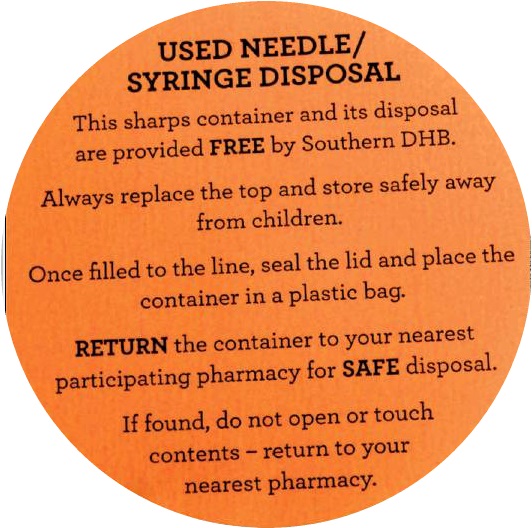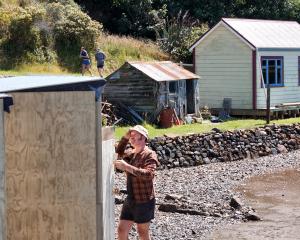
Alongside needles and syringes, Dunedin’s recycling bins also occasionally contain medical waste such as catheter and transfusion bags, and unpleasant rubbish such as nappies, knives, condoms, used sanitary pads by the hundreds and supermarket bags full of dog poo.
Dunedin recycling baling plant manager Jeff Gamble said such items were hazardous to collection staff as well as the eight staff at the Green Island plant who sorted the material manually.
About 20-24 tonnes of material was trucked to the plant for recycling each day, he said.
‘‘Because we have manual labour and moving machinery, the things that really worry me are twine, wire, fishing line and fishhooks, which the staff have to try to untangle,’ Mr Gamble said.
Some of the waste might have come from rubbish bags which burst during compaction in the collection trucks, but some people were not taking enough care, he said.
For the past two years, the Southern District Health Board had funded a free disposal service for items such as needles and syringes, through pharmacies.
‘‘For a while, things improved, but we have had some spikes in the dumping of needles and syringes,’’ he said.
‘‘We regularly get five or six needles a day.’’ He urged people who needed to dispose of medical ‘‘sharps’’ to access the fully funded service.
Dunedin City Council waste and environmental solutions education and promotions officer Catherine Gledhill said the city was eight weeks into a 12-week inspection programme of randomly selected recycling bins.
The programme, in which about 3500 bins would be inspected three times, aimed to congratulate those who recycled correctly, highlight minor issues and warn

those who were placing rubbish or hazardous materials in their recycling bins.
Brightly coloured information cards — green, yellow and red — were being attached to recycling bins to let people know how they were doing.
‘‘The vast majority of people are genuinely trying to recycle correctly, but we are seeing shocking behaviour from a very small percentage of people,’’ Ms Gledhill said.
Data gathered by inspectors showed about 1% of people were dumping hazardous waste in recycling bins, and about 4% to 5% were having bins rejected because of the amount of nonrecyclables.
The inspection system was first implemented last year and resulted in an improvement in recycling quality of 27% across the inspected bins over three months.
‘‘The message is that the cleaner we can get our recycling, the more likely we are to be able to find a market for it,’’ Ms Gledhill said.
The recycling inspection programme is one of the DCC initiatives which earned Dunedin a place as a finalist for the most beautiful city in this year’s Beautiful Awards, run by Keep New Zealand Beautiful.
In a statement released last week, Keep New Zealand Beautiful chief executive Heather Saunderson said Dunedin was selected for its outstanding environmental and sustainability initiatives.
Used needle/syringe disposal
This












